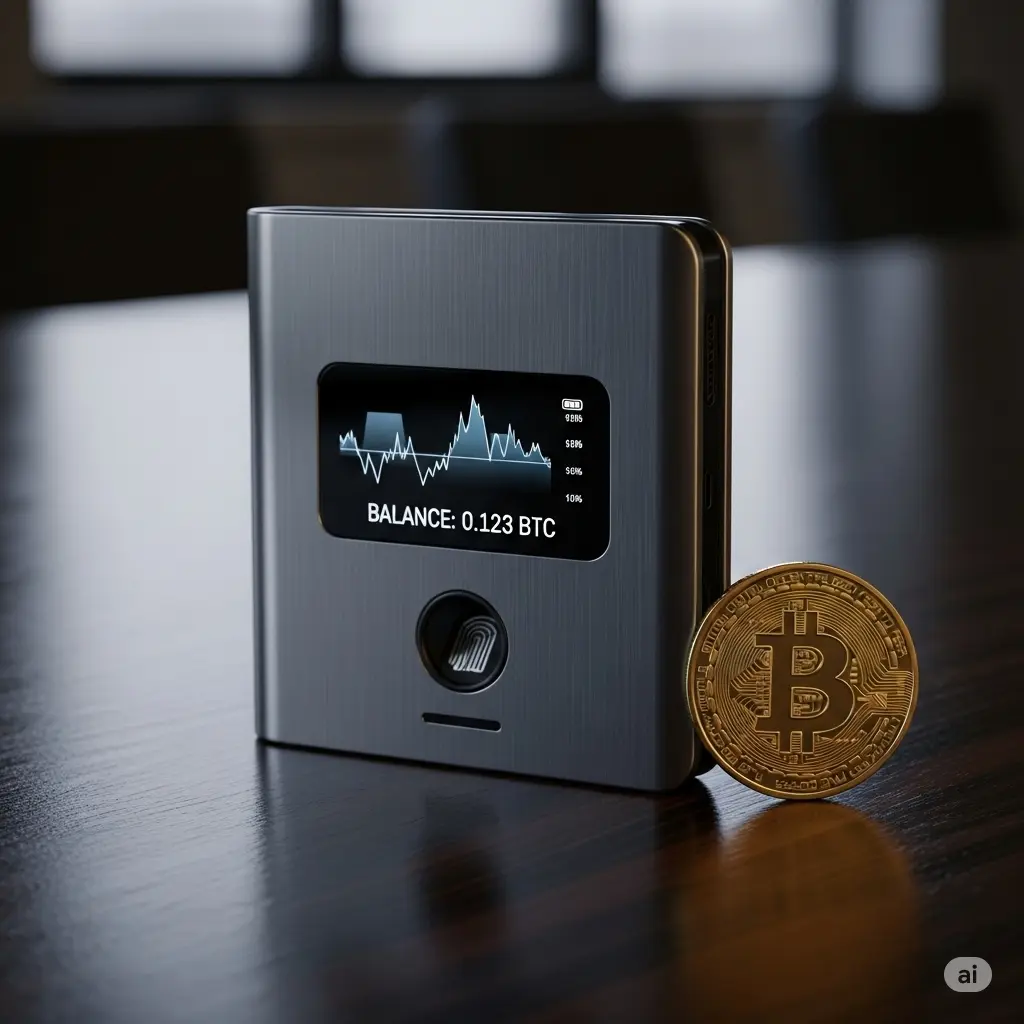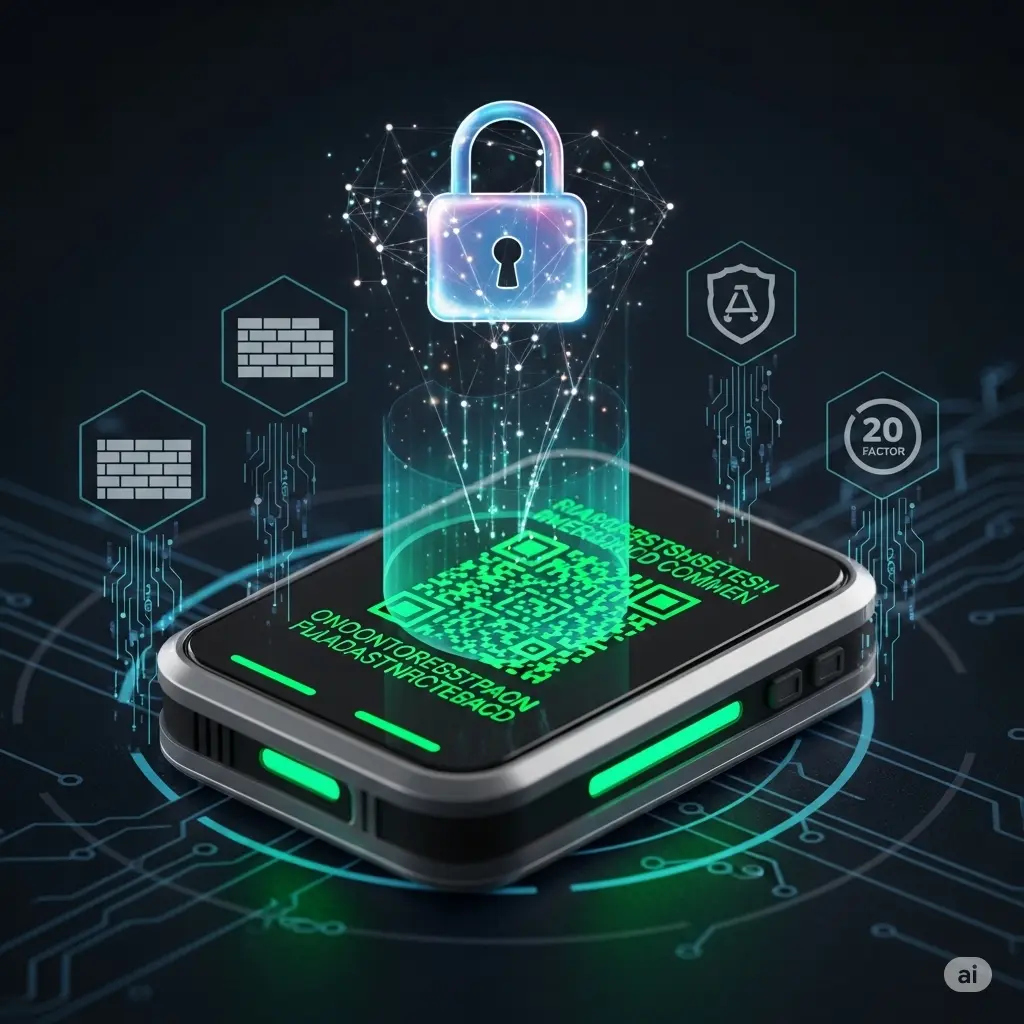Powerful Secure Crypto Wallet That Unleashes Invincible Security
The future of finance demands top‑tier safety. A Secure Crypto Wallet is essential today. With hacking rising, investors need ironclad protection. This post shows complete information on the powerful secure crypto wallet that brings invincible security. Learn why it matters, how it works, and which types best suit your needs. Stay informed and confident. Global Crypto Sports brings trusted insight.
What Is a Secure Crypto Wallet?
A secure crypto wallet stores your crypto assets safely. It uses cryptographic keys to access blockchain funds. Wallets come in various forms:
- Cold wallet – Works offline for extra protection.
- Hot wallet – Connected to the internet for easy access.
- Hardware wallet – A type of cold wallet resembling a USB device.
- Mobile wallet – An app‑based hot wallet on your phone.
- Decentralized wallet – Users control their own keys.
These wallets guard your assets like a digital fortress.

Why Is a Secure Crypto Wallet Important Right Now?
Cybercrime evolves fast. Crypto hacks surge as asset values grow. Smart criminals target weak wallets. A powerful secure crypto wallet stops them. It creates trust and confidence. Especially for Web3, DeFi participants and global investors. Global Crypto Sports wants you protected while exploring crypto sports tokens or unlike assets.
Key Crypto‑Term Definitions
To help beginners and intermediate users, here are key terms:
- Blockchain: A distributed ledger that stores transaction data across many nodes.
- DeFi (Decentralized Finance): Financial services built on blockchain without intermediaries.
- Web3: The next generation of the internet, where users control data and identity.
- Private Key: A secret alphanumeric code granting access to your crypto.
- Seed Phrase: A backup of your private key, usually 12 or 24 words.
- Public Key: The wallet address you share to receive crypto.
Understanding these sets you up for wallet mastery.
Features of an Invincible Security Crypto Wallet
Multi‑Layer Encryption
Secure crypto wallets use strong encryption. This blocks unauthorized access. Your private key stays secret—even if the device is lost.
Offline Storage (Cold Wallet)
A cold wallet stores keys offline. No internet means no remote hacks. Devices like hardware wallets shine here.
Secure Backup and Recovery
A proper wallet includes a wallet backup. You get a seed phrase. That helps recover your assets if you lose the device.
Two‑Factor and Biometric Security
Many wallets add extra authentication. Fingerprint or PIN plus seed phrase adds a protective layer.
Open‑Source Code and Audits
Top wallets use audited, open‑source code. Independent experts inspect for backdoors. This increases trust and security.
Easy User Interface
Even with strong security, the wallet remains user‑friendly. This helps beginners use it with confidence.
Comparing Wallet Types
We compare cold wallet, hot wallet, hardware wallet, mobile wallet, and decentralized wallet:
| Wallet Type | Pros | Cons |
|---|---|---|
| Cold Wallet | High security, offline, resistant to hacks | Less accessible, requires physical possession |
| Hot Wallet | Convenient, fast access to exchanges and apps | Higher risk if the phone is compromised or stolen |
| Hardware Wallet | Secure offline storage plus usability; often audited | Costly, risk of physical loss or damage |
| Mobile Wallet | Ultimate convenience, on‑the‑go transactions | Higher risk if phone is compromised or stolen |
| Decentralized | Full control, private-key ownership, trustless | Responsibility lies fully on you; lost seed means lost funds |
Real‑World Examples and Case Studies
Case Study 1: Hardware Wallet Success
Alice stores 10 BTC in a hardware wallet. She faces a phishing email. The hardware wallet blocks the attack due to offline key storage. Her assets stay safe. A powerful secure crypto wallet step prevented loss.
Case Study 2: Hot Wallet Failure
Bob uses a hot wallet without backup. Hackers breach his cloud‑based wallet. He loses funds. No wallet backup equals no recovery. His mistake shows the risks of weak security.
Case Study 3: Decentralized Wallet with Seed Phrase Backup
Charlie stores crypto in a decentralized wallet. He loses his phone. Using his seed phrase wallet backup, he restores the wallet easily. He regains control. This demonstrates how decentralization plus backup protects assets.

Pros and Cons of a Powerful Secure Crypto Wallet
Pros
- Unmatched Security: Cold and hardware wallets protect keys offline.
- Control: Decentralized wallets let you own your keys, not a third party.
- Recovery Flexibility: Seed phrases enable wallet backup.
- Trust via Audits: Open‑source code lets experts confirm security.
- User Confidence: UI clarity reduces beginner errors.
Cons
- Cost: Hardware wallets may cost $50–$150.
- Usability Trade‑offs: Cold storage may slow quick trades.
- Responsibility: You must secure seed phrases yourself.
- Physical Risks: A broken or lost device without backup equals loss.
- Threat Complexity: Social engineering can trick even security‑minded users.
Benefits and Potential Risks
Benefits
- Protection against hacks and theft
- Peace of mind for long‑term holdings
- Control over private keys and wallet backup
- Support for DeFi and Web3 integration
- Enhanced trust with open‑source, audited wallets
Risks
- Misplacing or losing the seed phrase can mean permanent loss
- Malware or phishing may trick users into revealing keys
- Hardware failure if the device breaks and no backup exists
- False sense of security—users may relax vigilance
Actionable Advice for Beginners and Intermediate Crypto Investors
For Beginners:
- Choose a reputable hardware wallet that’s widely reviewed.
- Write your seed phrase on paper and store it in a safe place.
- Enable two‑factor or biometric security where possible.
- Start small when transferring funds for the first time.
- Test a recovery with a small amount before big transfers.
- Stay updated on software updates from wallet developers.
- Avoid storing large sums in hot or mobile wallets long‑term.
For Intermediate Investors:
- Diversify wallets: spread funds across cold and hot wallets.
- Use multi‑signature setups for high‑value storage.
- Audit your wallet apps and firmware regularly for updates or vulnerabilities.
- Use secure backup strategies: encrypted cloud plus physical backup.
- Practice seed phrase recovery offline.
- Monitor wallet addresses for suspicious activity.
- Stay educated via trusted sources like Global Crypto Sports on crypto wallet security.
Engaging with Questions for Readers
- Have you backed up your wallet backup safely?
- Which wallet types do you trust most?
- Do you use a cold wallet yet? Why or why not?
- Have you tested a recovery using your seed phrase?
- What crypto security resources do you follow?
Frequently Asked Questions (FAQ)
1. What is the best crypto wallet 2025 for security?
The best crypto wallet 2025 blends cold storage, audited code, and easy recovery. Many favor hardware wallets like Ledger or Trezor with strong community trust.
2. Cold wallet vs hot wallet—which is safer?
A cold wallet is safer due to offline storage of private keys. Hot wallets offer convenience but are more vulnerable to online threats.
3. How can I back up my crypto wallet securely?
Write your seed phrase on durable material (paper, metal). Store copies in secure, separate locations. Use encrypted backups if needed.
4. What makes a hardware wallet more secure?
Hardware wallets isolate private keys from the internet. Even when connected, signing happens inside the device.
5. What is a decentralized wallet?
A decentralized wallet gives you full control of your private keys. No central authority holds your assets.
6. How do I recover a lost or damaged wallet?
Use your seed phrase in the original or compatible wallet app. Recovery works even on a different device.
7. Are mobile wallets safe for small daily use?
Yes, if your phone is secure with strong passwords and caveats. Use them for small amounts only. Always keep a cold wallet for long‑term funds.
Conclusion
A Secure Crypto Wallet delivers invincible security and peace of mind for investors. It matters deeply in today’s crypto climate. Your choice of wallet affects your asset safety. Cold wallets and hardware wallets offer top security. Decentralized wallets empower you with true ownership. Back up your seed phrase, audit your wallet, and diversify storage.
Act now:
- Invest in a trusted hardware wallet.
- Securely store your wallet backup.
- Test recovery before transferring large funds.
- Stay informed through helpful sources like Global Crypto Sports.
Share this post with crypto friends. Subscribe to stay informed about cryptography, wallet advances, and crypto sports integration. Your crypto assets deserve powerful, secure protection.
